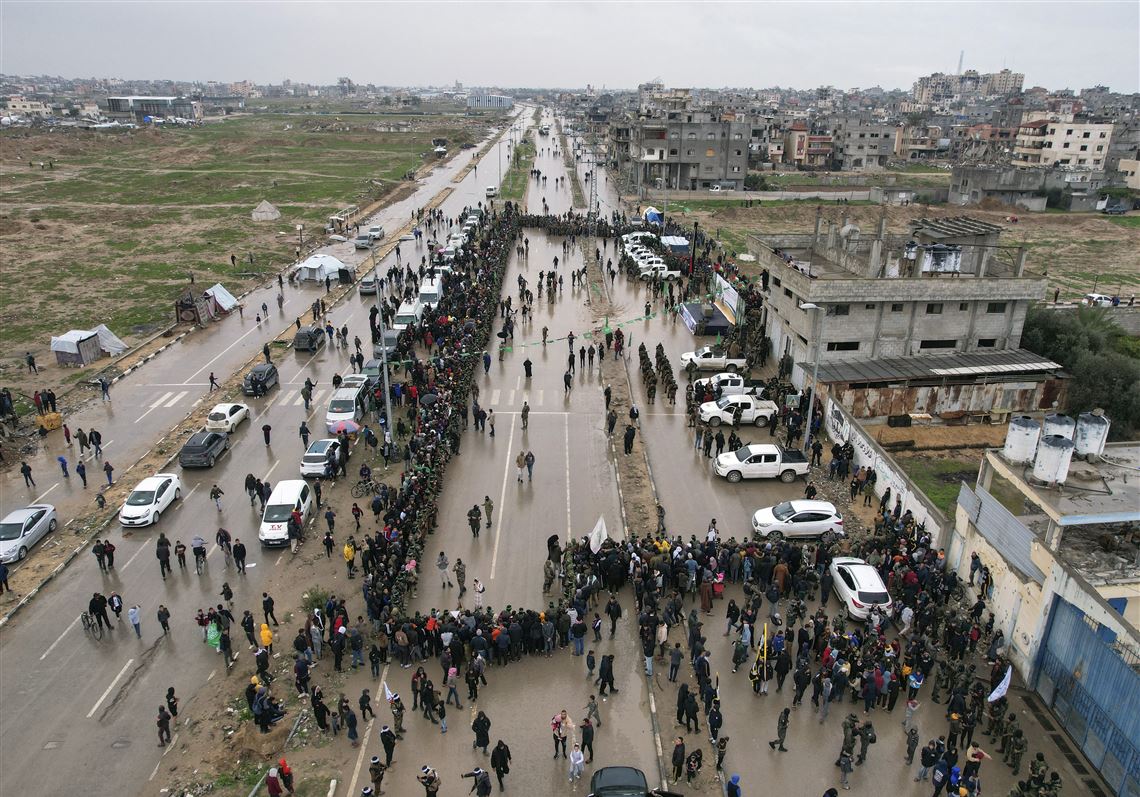Israel to Release 620 Palestinian Prisoners as Hamas Frees Six Hostages in Gaza
Major Prisoner Exchange Marks Progress in Ongoing Conflict
In a significant development amid the ongoing conflict, Israel has agreed to release 620 Palestinian prisoners as part of a deal that has resulted in the release of six Israeli hostages by Hamas in Gaza. The exchange, which is being closely monitored by international mediators, marks a major step in ongoing negotiations aimed at de-escalating tensions between the two sides.
Details of the Prisoner Exchange
The agreement comes as part of a broader diplomatic effort involving key international players, including Egypt and Qatar, who have been working behind the scenes to facilitate negotiations. According to Israeli authorities, the 620 Palestinian prisoners set for release include individuals detained on various charges. The move is seen as an attempt to ease hostilities and potentially lay the groundwork for a more sustainable ceasefire.
Hamas, in turn, has released six Israeli hostages who were being held in Gaza. These captives, whose identities have not been fully disclosed, were reportedly in stable condition upon their release. Israeli medical teams and intelligence agencies have been involved in their immediate evaluation and debriefing.
Political and Humanitarian Implications
The prisoner exchange is expected to have far-reaching implications for both Israeli and Palestinian political landscapes. For Israel, the decision to release a large number of Palestinian detainees is likely to face scrutiny from hardline factions that oppose concessions to Hamas. However, the return of Israeli hostages is seen as a critical humanitarian and political victory for the Israeli government.
On the Palestinian side, the release of prisoners is likely to be celebrated as a triumph, particularly by Hamas supporters who view such exchanges as validation of their resistance strategy. Many of the prisoners being freed have been held for years, and their return is expected to stir strong emotions across Palestinian territories.
International Reactions and Future Prospects
Global leaders have responded with cautious optimism, emphasizing the need for continued dialogue to prevent further escalations. The United Nations, European Union, and United States have all reiterated calls for a long-term resolution to the Israeli-Palestinian conflict, urging both sides to seize this moment as an opportunity for deeper negotiations.
Despite the positive step, tensions remain high, with both Israel and Hamas continuing to engage in sporadic clashes. Analysts suggest that while the exchange signals some level of cooperation, it does not necessarily indicate a broader shift toward peace.
Source : Swifteradio.com


